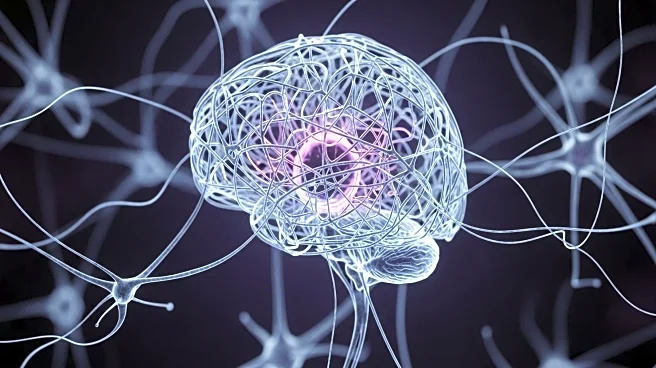What is the story about?
What's Happening?
AI-generated content is increasingly being used to replicate the voices and likenesses of deceased individuals, raising concerns about its impact on memory and grieving processes. Recently, AI-generated messages purportedly from Charlie Kirk were played in churches, leading congregants to react emotionally as if they were real. This phenomenon is part of a broader trend where AI is used to create 'griefbots' that simulate interactions with deceased loved ones. While some find comfort in these digital continuations, experts warn of the potential for AI to implant false memories and blur the line between reality and fabrication. A study by MIT Media Lab highlights that exposure to AI-edited images can significantly alter a person's memory, leading to high confidence in false recollections.
Why It's Important?
The use of AI in creating digital replicas of deceased individuals poses ethical and psychological challenges. On one hand, it offers a new way for people to cope with loss, potentially providing comfort and closure. On the other hand, it risks distorting memories and prolonging grief by creating an artificial presence that may prevent individuals from moving on. This technology also raises questions about consent and the rights of the deceased, as well as the potential for misuse in manipulating emotions. The implications extend to mental health, as reliance on AI-generated interactions could exacerbate feelings of isolation or dependency, particularly among vulnerable individuals.
What's Next?
As AI technology continues to evolve, there is a need for clear guidelines and ethical standards to govern its use in sensitive areas such as grief and memory. Stakeholders, including tech companies, mental health professionals, and policymakers, must collaborate to address these challenges. This includes developing safeguards to prevent the misuse of AI in creating false memories and ensuring that users are aware of the artificial nature of these interactions. Additionally, further research is needed to understand the long-term psychological effects of engaging with AI-generated content in the context of grief and memory.
Beyond the Headlines
The phenomenon of AI-generated griefbots highlights broader societal shifts in how technology is integrated into personal and emotional aspects of life. It reflects a growing trend of digital memorialization and the desire to maintain connections with loved ones beyond death. This raises questions about the role of technology in shaping human experiences and the potential for AI to redefine traditional practices of mourning and remembrance. As society grapples with these changes, it is crucial to consider the cultural and ethical dimensions of AI's impact on human relationships and memory.














